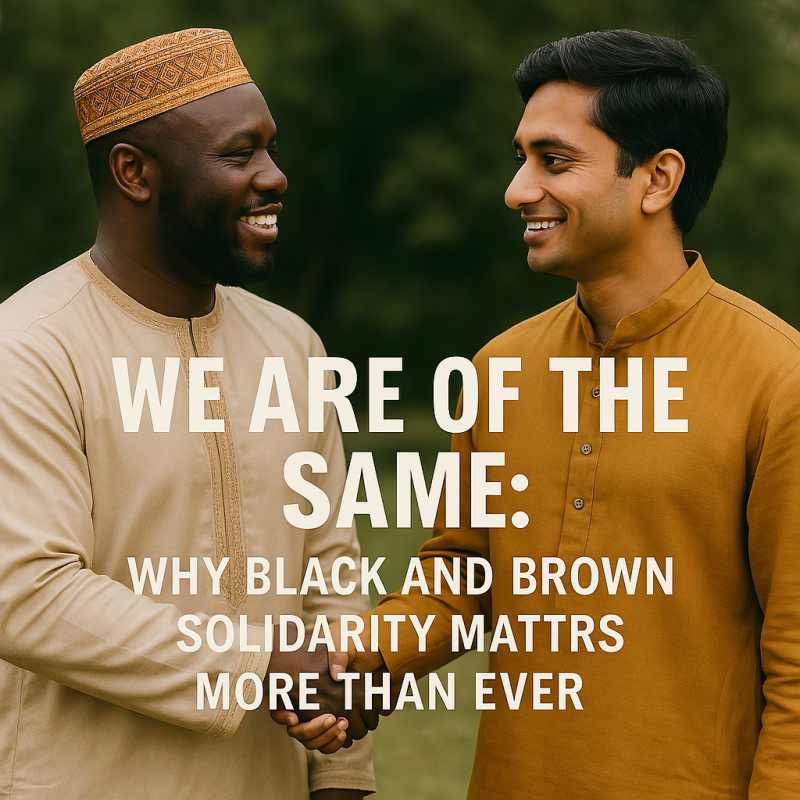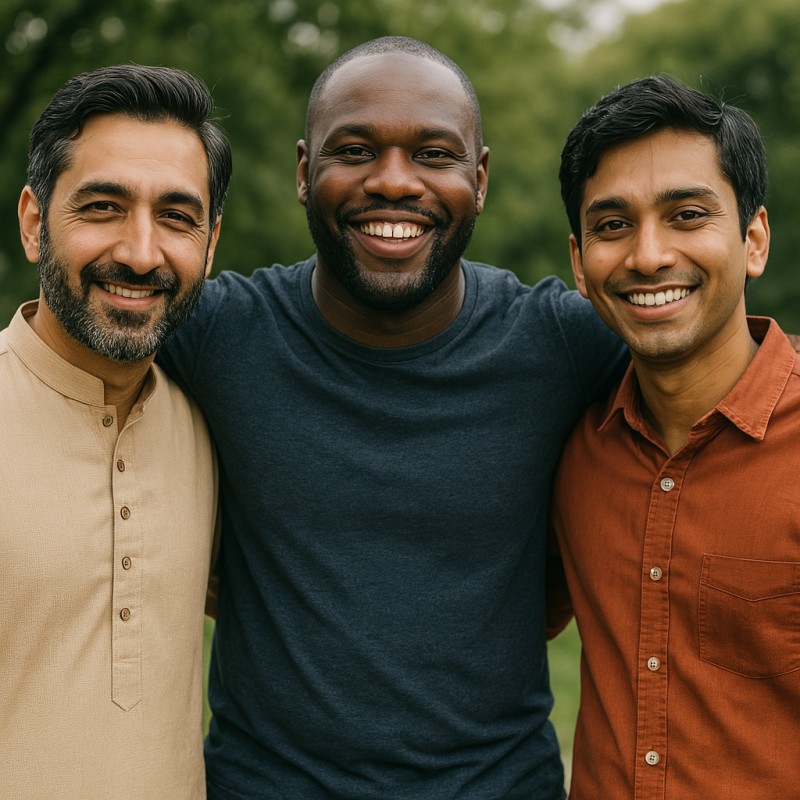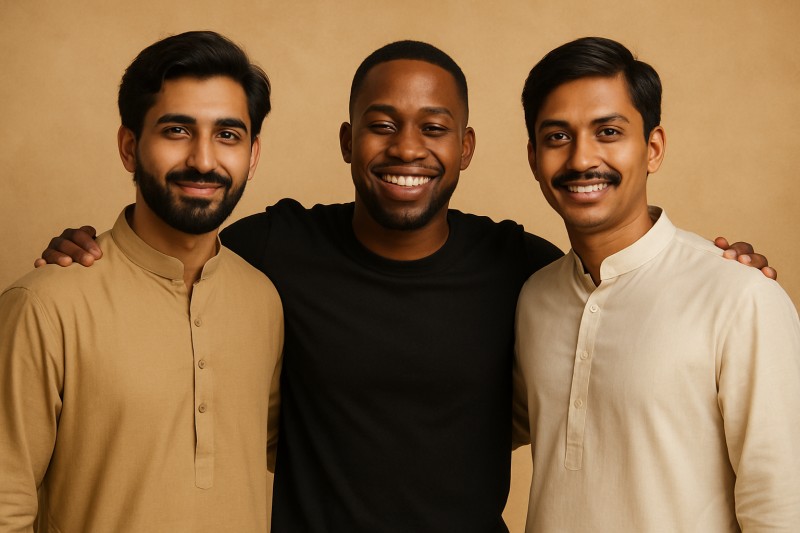
As a Pakistani woman married to a Black man, I’ve lived in the space where two cultures, two communities, and two struggles meet. I’ve seen the beauty in both. I’ve also seen the pain, the misunderstandings, and the deep wounds caused by racism, colorism, and division—sometimes even between us.
I’ve defended Black people. I will always defend Black people, because I know how deeply racism has shaped their experience in this world. I see it in the systems. I see it in the media. I see it every time people try to silence or dismiss their pain. Black Lives Matter—period.
But recently, someone sent me a video that reminded me why we still have so far to go—not just in how we fight white supremacy, but in how we treat each other.
The video showed a Black man reacting to an Indian rapper. And instead of just talking about the music, he took shots at the person’s culture. He said he didn’t even know Indian people could rap, then made a nasty comment about how if someone poops in a lake, they’re just disgusting—implying that this is what people in India do.
It was racist. It was ugly. And it broke my heart.
Because here’s the thing: Brown folks—whether Indian, Pakistani, Bangladeshi, Nepali, whatever—have been rapping. We’ve been using music to tell our stories, too. Hip hop is global now, because Black culture made it powerful. Because Black brilliance birthed it. And brown people saw that power, felt it in our bones, and added our voices—not to steal, but to speak our truths, too.

But even beyond the music, what I’m so sick of is this deep-rooted hatred toward people who are just different shades of us. This “you’re not like us” attitude. This internalized colonialism that shows up in jokes, in disrespect, in straight-up racism—like saying Indian people don’t have plumbing or acting like a brown man rapping is a joke.
We forget too easily that white supremacy designed this. They made sure Black people couldn’t claim a homeland. They made sure brown people internalized shame. They made sure we would always look sideways at each other instead of forward, together.
And it’s working. Still.
But we have to stop. We have to break that cycle. We need to stop seeing each other as threats or jokes. We are not beneath each other. We are not strangers to each other. We are of the same.
Yes, there is colorism in my culture, and I hate it. I fight it every day. But it’s also time we talk about how anti-brownness exists in other spaces too—and how it hurts when you love both communities and watch them tear each other down. I’ve seen more acceptance when it’s a white person rapping than a desi man. I’ve seen brown folks uplift white standards while dismissing their own. And I’ve seen too many chances at unity wasted over ego and ignorance.
We are all shades of brown.
We are the global majority.
We all came from the same roots—Africa is the beginning of human life.
And every genre of music we love exists because of Black people. That truth deserves respect.
But so do the voices of every culture that’s been mocked, colonized, and cast aside.

So to my Black siblings, to my brown siblings: I love us both. I love us all. I just wish we’d stop hating ourselves in each other.

I’m not writing this to point fingers. I’m writing it because I want better for all of us. Because I know what it feels like to love across these lines—and how painful it is when those lines become walls.
Let’s stop giving white supremacy exactly what it wants. Let’s stop tearing each other down over skin tone, plumbing, or passports.
Let’s remember that we are of the same.
And we’re stronger when we move like it.
Add comment
Comments